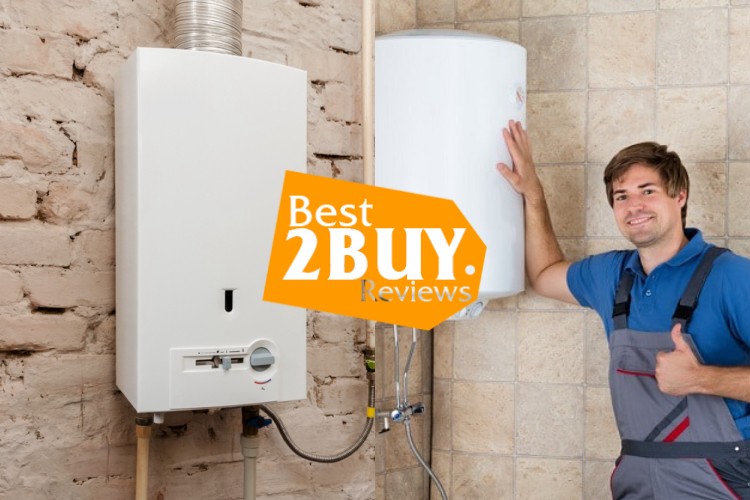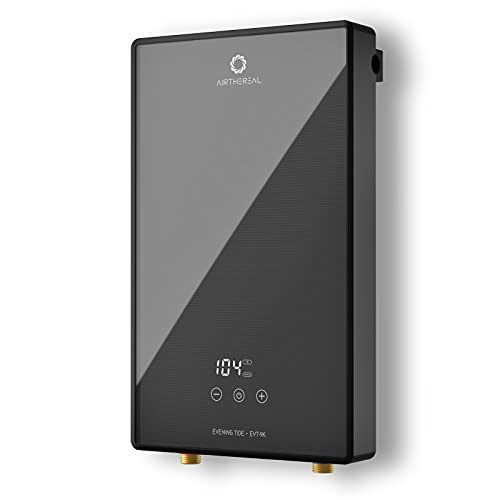Everything You Need To Know Before Choosing An Electric Water Heater

What Is An Electric Water Heater?
An electric water heater is a device that uses electricity to heat water for various purposes, such as bathing, washing dishes, or providing hot water for household needs. It consists of a tank or reservoir that holds the water and an electric heating element that heats the water to the desired temperature.
How Does The Water Heater Work?
Electric water heaters, as their name implies, employ electricity for heating water. They can be powered by either 120- or 240-volt current, with the latter being more prevalent. These heaters are equipped with metal heating elements that extend into the water tank through the side wall. Usually, there are two heating elements in a water heater, positioned at the top and near the bottom of the tank. When activated, the electricity energizes the metal loops, causing them to heat up and, consequently, heat the water surrounding them. The wattage of these heating elements varies among different products, depending on factors such as size and recovery time.
How Many Types Of Electric Water Heaters
There are several types of electric water heaters available in the market. Here are some common types:
- Storage Tank Water Heater: This is the most common type of electric water heater. It consists of a tank that stores and heats a specific amount of water. The heated water is then available for use whenever needed.
- Tankless Water Heater: Also known as on-demand water heaters, these units heat water directly without the need for a storage tank. They provide hot water instantly as it passes through the heating element.
- Heat Pump Water Heater: This type of water heater uses electricity to move heat from the air or ground to heat the water. It is more energy-efficient than traditional electric water heaters.
- Solar Water Heater with Electric Backup: These systems use solar energy to heat water, but they also have an electric backup system for cloudy days or when additional hot water is required.
- Hybrid Water Heater: This type combines the technology of a heat pump water heater and a storage tank water heater. It uses a heat pump to extract heat from the air and transfers it to the water in the tank.
- Point-of-Use Water Heater: These small water heaters are installed near the point of use, such as under a sink or in a bathroom. They provide hot water directly to a specific location, eliminating the need for long hot water pipes.
Things to Consider When Choosing Electric Water Heaters
When choosing an electric water heater, there are several important factors to consider:
- Size and Capacity: Determine the appropriate size and capacity of the water heater based on your household's hot water needs. Consider the number of people in your home and their usage patterns to ensure you have enough hot water for daily activities.
- Energy Efficiency: Look for water heaters with high energy efficiency ratings. Energy-efficient models can help reduce your electricity bills and have a lower impact on the environment. Check for the Energy Star label, which indicates that the appliance meets strict energy efficiency guidelines.
- Recovery Rate: The recovery rate refers to how quickly the water heater can heat a new batch of water after the existing hot water supply has been depleted. Consider the recovery rate to ensure that the water heater can meet your household's hot water demands during peak usage times.
- Insulation: Insulation plays a crucial role in minimizing heat loss from the water heater. Look for models with adequate insulation to reduce standby heat loss, which can save energy and maintain hot water temperatures for longer periods.
- Temperature Control: Consider water heaters with adjustable temperature controls. This feature allows you to set the desired hot water temperature, ensuring comfort and safety while preventing scalding accidents.
- Durability and Warranty: Check the durability and reliability of the water heater. Look for models with good reviews and a solid warranty. A longer warranty period indicates that the manufacturer has confidence in the product's quality.
- Installation and Maintenance: Consider the ease of installation and maintenance requirements. Some water heaters may require professional installation, while others can be installed as a DIY project. Additionally, check if the water heater requires regular maintenance and if replacement parts are readily available.
- Cost: Compare the upfront cost of the water heater with its long-term energy savings. While a more energy-efficient model may have a higher initial cost, it can save you money in the long run through reduced energy consumption.
- Safety Features: Look for safety features such as pressure relief valves, automatic shut-off mechanisms, and anti-scald protection. These features help prevent accidents and ensure the safe operation of the water heater.
- Brand Reputation: Consider the reputation of the brand and the manufacturer's customer service. Research customer reviews and ratings to gauge the reliability and customer satisfaction associated with the brand.
Safety Tips For Using Electric Water Heaters
Using electric water heaters can be convenient and efficient, but it's important to follow safety guidelines to prevent accidents and ensure the proper functioning of the appliance. Here are some safety tips for using electric water heaters:
- Read the manufacturer's instructions: Familiarize yourself with the user manual provided by the manufacturer. It contains important safety information specific to your water heater model.
- Proper installation: Ensure that your electric water heater is installed correctly by a qualified professional. This includes proper electrical wiring, grounding, and plumbing connections.
- Temperature settings: Set the water heater's temperature to a safe level, typically around 120°F (49°C). This helps prevent scalding accidents, especially for children and the elderly.
- Pressure relief valve: Regularly check the pressure relief valve to ensure it is functioning correctly. This valve helps release excess pressure and prevents the tank from exploding. If you notice any issues, contact a professional plumber to inspect and replace the valve if necessary.
- Insulation: Insulate the hot water pipes to prevent heat loss and reduce the risk of accidental burns. Use appropriate insulation materials and ensure they are properly installed.
- Electrical safety: If you need to perform any maintenance or repairs on your electric water heater, always turn off the power supply at the circuit breaker before starting any work. If you're unsure, consult a professional electrician.
- Avoid flammable materials: Keep flammable materials, such as gasoline, paint, or cleaning agents, away from the water heater. These substances can ignite if they come into contact with the heater's hot surfaces.
- Regular maintenance: Schedule regular maintenance checks for your electric water heater. This includes inspecting the anode rod, flushing the tank to remove sediment buildup, and checking for any signs of leaks or corrosion. If you notice any issues, contact a professional for repairs.
- Carbon monoxide detection: If your electric water heater is part of a hybrid system that uses a heat pump, ensure you have a working carbon monoxide detector installed in your home. Although electric water heaters don't produce carbon monoxide, the heat pump component might.
- Keep the area clear: Maintain a clear space around the water heater, free from clutter and debris. This allows for proper ventilation and easy access for maintenance or repairs.
Remember, if you have any concerns or doubts about your electric water heater's safety, it's always best to consult a professional plumber or electrician for guidance.










